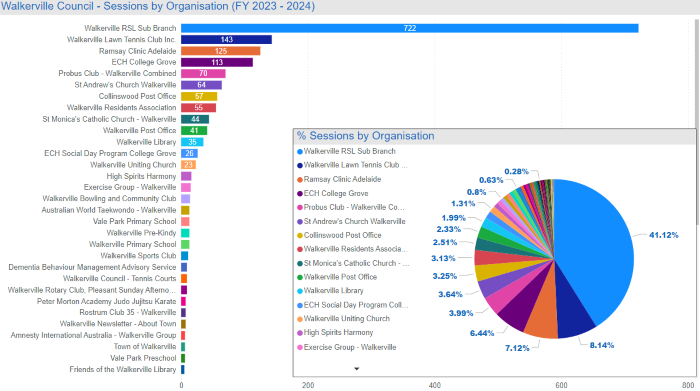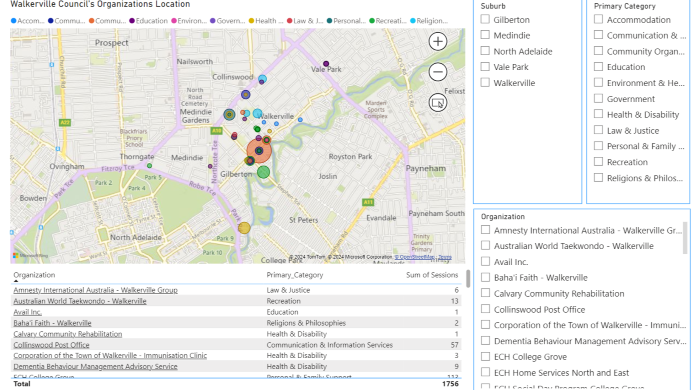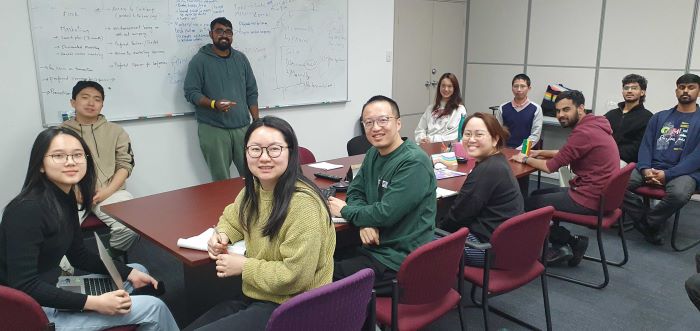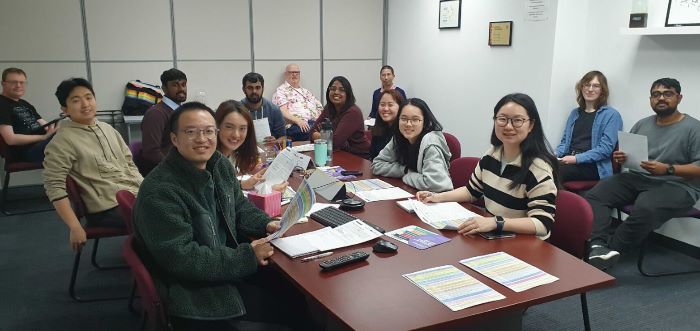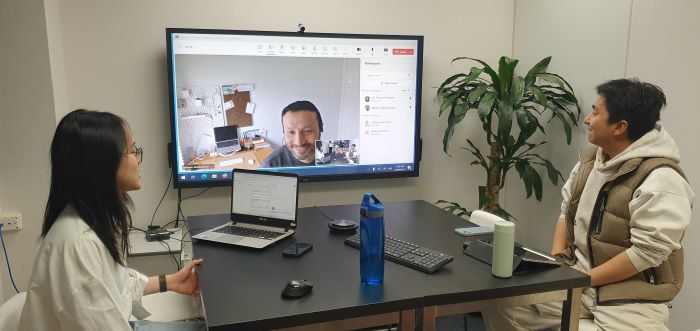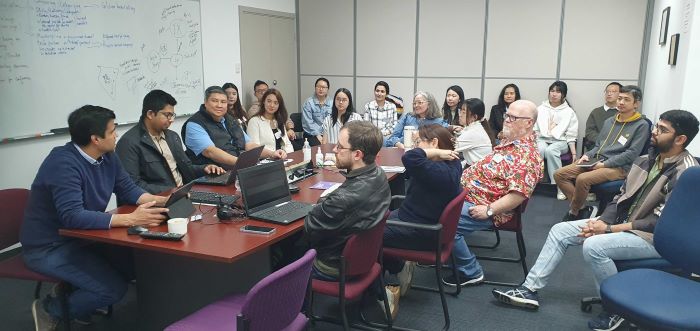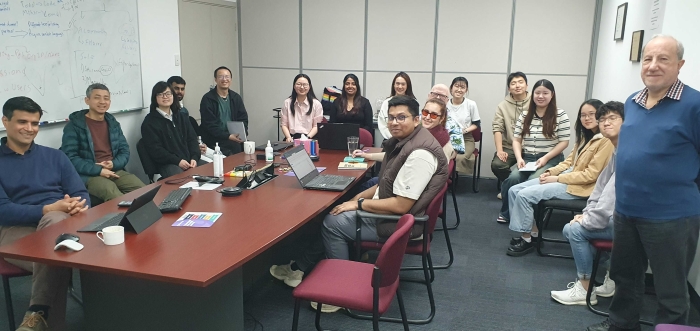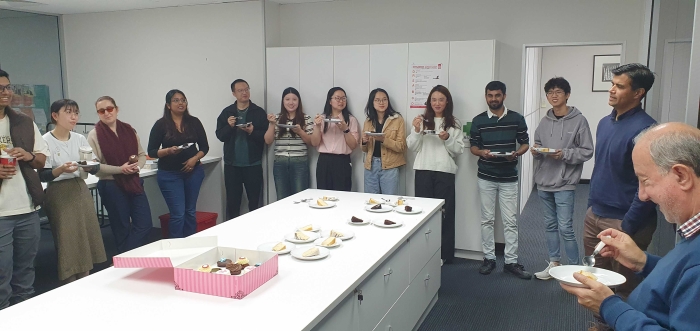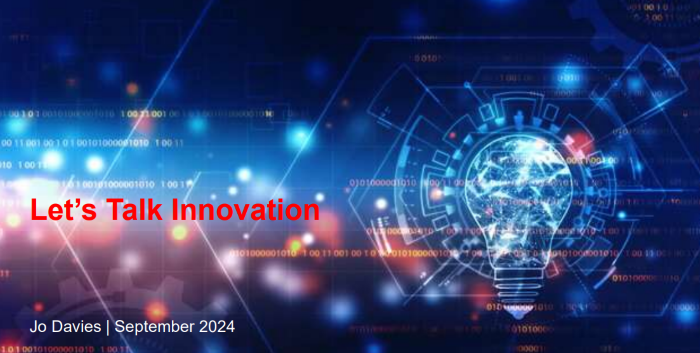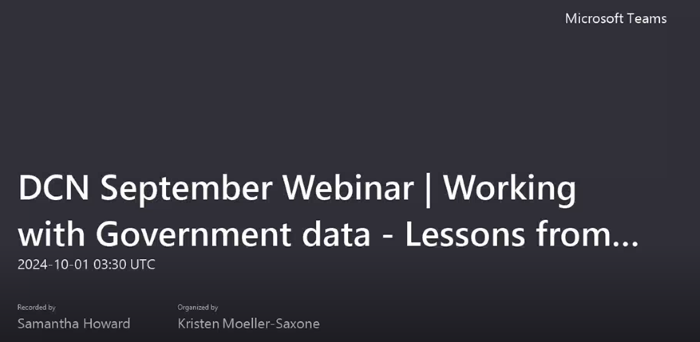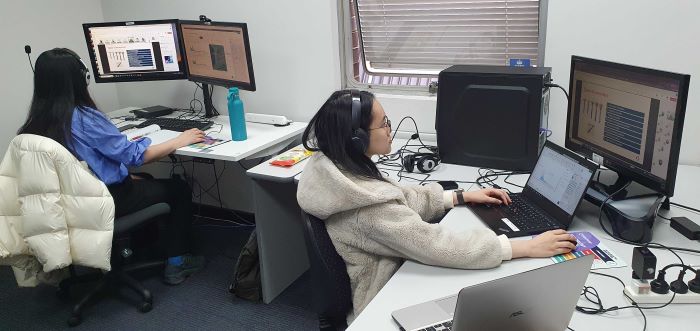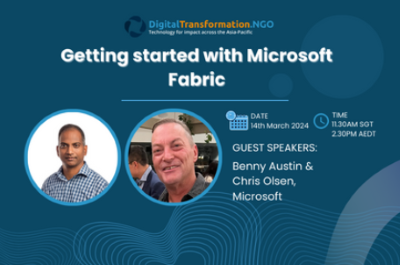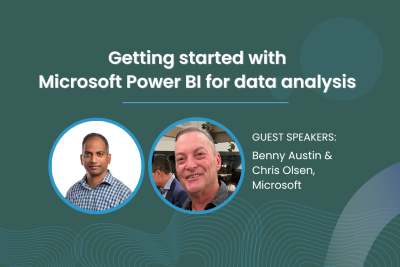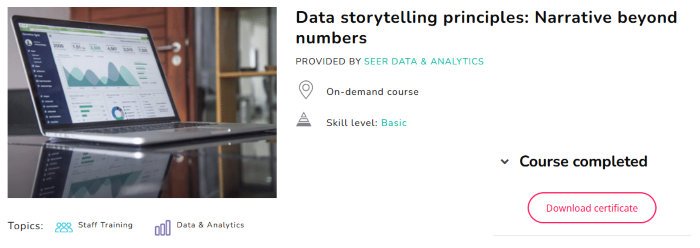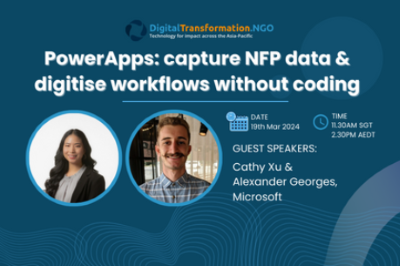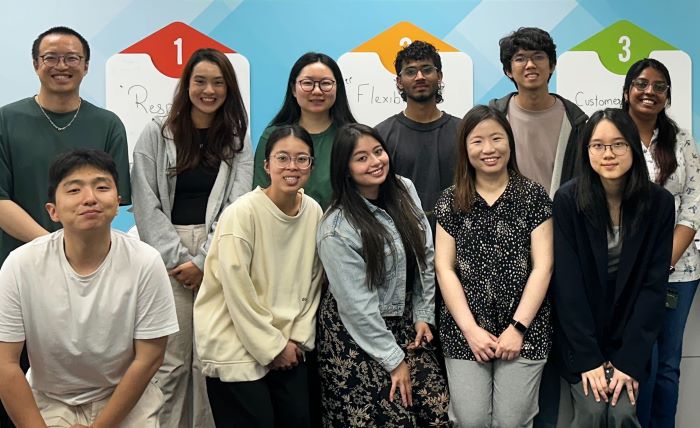Adelaide University Internship Experience - Lily Thuy Linh Nguyen

Welcome Lily!
Lily Thuy Linh Nguyen joined our SAcommunity Data Analytics Team for her University of Adelaide SET (Sciences, Engineering and Technology) Internship for her Bachelor of Computer Science Semester 2, 2024: 13 August 2024 - 26 November 2024.
She is completing a 280 hour internship onsite with SAcommunity at the Connecting Up Office, Infoxchange for 3 days (22.5 hours) a week for ~14 weeks around her classes. Lily returned to volunteer on the 11 December 2024 and 5 February 2025 to reconnect with colleagues before returning to her university studies and internship programs.
All the best Lily!
Total Hours 288 Joined 13 August 2024 Last Check-in 5 February 2025 (retired)
I. Personal Biography
Lily is a second-year student at The University of Adelaide studying Bachelor of Computer Science. She is passionate about Data Science and Artificial Intelligent/Machine Learning. She maintains high performance in class and is actively engaged in university’s computer science club, while effectively balancing her time with a part-time job at a restaurant.
Lily is interning at Connecting Up where she apply her mathematics and programming skills that she learnt in university to contribute to SAcommunity database and gains hands-on experience. She aims to develop her technical skills in PowerBI, Python and Google Analytics. Additionally, she wants to expand her professional networks with like-minded people in Connecting Up and Infoxchange group to build wider industry connection.
In the future, Lily aims to pursue a career in data industry within the banking and consulting sector. Her interest in finance and economics, discovered through electives courses in university, has sparked a strong passion for analyzing large financial datasets. She finds great satisfaction in problem solving and excited to leverage these skills in her future career.
II. Community Services in Councils Project
I selected Town of Walkerville and Yalata Community for my Power BI council reports.
I have been responsible for the PowerBI and Canva reports for:
- FY2022-2023 and FY2023-2024 of the Town of Walkerville, and
- FY2021-2022, FY2022-2023, and FY2023-2024 of Yalata Community
My reports followed previous visualisation report work by Ziqi Xu and Renu Bala.
There are a number of steps involved in the creation of data reports for community services of the two selected councils. Cleaning and validating data from raw CVS files that were extracted from Google Analytics 4 and SAcommunity. I used both manual cross-checking and Python scripts to help me with the process of transforming data. The cleaned data would then be ready to be compiled into comprehensive Excel files. I used PowerBI and Canva to visualize these data to reveal useful insights. Final data reports will be published to the website, and introduced by me to respective councils' stakeholders for information and/or feedback.
1. Dashboard
I enhanced the dashboard templates used by the Data Analytics Team by incorporating Geomapping to facilitate the search for council services and adding Session Trend Explanation to provide deeper insights behind the performance of their landing pages.
2. Council Contact
I then contacted the councils by email to introduce the service and send links to the online reports.
III. Work experience - Internal and External Events, Connections and Networks
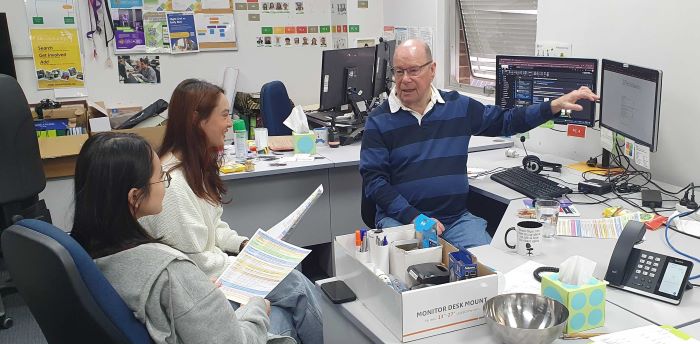
To support data collection, cleaning, and updating the council's dataset, Lily participated in telephone training where she learned and practiced techniques for communicating with service representatives to confirm and update their information.
This training enhanced Lily’s understanding of the directory and data collection methods while also building her confidence in making phone calls and practicing proper telephone etiquette.
In the future, I will reach out to council stakeholders via phone and email to present my data reports.
(Lily and intern Aaron Xuefeng Li with Ailihamu Abudouresuli - Cloud Engineer at Infoxchange)
2. Mentor Meeting 24 September 2024
I prepared 5 questions for her mentors and then recorded 5 aspects I felt were helpful for me to share on my portfolio for both myself and other interns. I shared my experience in meeting Ailihamu Abudouresuli - Cloud Engineer, Infoxchange below:
"It was an invaluable opportunity to meet Ailihamu Abudouresuli. His expertise in Cloud / DevOps Engineering was truly enlightening. He provided me with useful insights into the field, covering both the technical and soft skills necessary for success. Most importantly, he helped me understand what this means for an undergraduate like me and what steps I can take as a student to enhance my employability in the tech industry.
During our conversation, Ailihamu shared his experiences studying and working in Australia, including the struggles in his early day as an international student. His journey was incredibly inspiring to me, especially as I navigate similar experiences. I admired his determination in job seeking and how he overcame challenges transitioning to IT from a non-tech background. His story instilled a sense of hope and motivation for my own future. Hearing about the practical steps he took and the mindset he maintained during his career transition provided me with essential guidance as I started my own path.
One particularly valueable piece of advice Ailihamu shared was the importance of focusing on the foundation —an advice he wished someone had told to him when he was still a student. He emphasized the significance of mastering the foundational concepts of Computer Science and suggested certifications that would be beneficial for a Cloud Engineer role. Additionally, he encouraged me to have my personal projects outside of university as a way to determine if this field is the right fit for me. Another practical insight he shared during our conversation is the recruitment process of Cloud Engineer roles. While companies have unique interview questions and distinctive technology stacks, a solid foundation in Computer Science is essential for technical interviews.
Ailihamu expressed a positive outlook on the future of the cloud job market, believing that roles like Cloud Engineer and DevOps will continue to grow as more companies transition to cloud services. Moreover, he also shared his experiences in finding internships and jobs, encouraging me to pursue opportunities actively through various sources. He suggested that volunteering is a great way to gain relevant work experience in the field.
I chose Ailihamu as my mentor because he has walked a path similar to mine. As someone without prior technology experience before university and limited time as an international student in Australia, I believed he could guide me in the right direction. I felt incredibly grateful and inspired by how he addressed my questions. His insights were highly relevant and practical for undergraduate students, offering clear steps to enhance my employability—something that is particularly important for international students like me seeking to transition from academia to the Australian tech industry."
(Connecting Up Monthly Meeting with guest Kylie Love - Senior Human Resources Business Partner at Infoxchange, Tuesday 13 August 2024)
(Connecting Up Monthly Meeting, 10 September 2024)
3. Connecting Up Monthly Staff Meeting
The monthly Connecting Up Team meeting is a formal meeting for sharing updates, plans, and highlights, ensuring all members stay informed about ongoing initiatives and upcoming events. These meetings aim to foster collaboration and teamwork, aligning everyone with organizational goals and participants hear from diferent teams including the marketing team, tech team, customer service team and volunteer team. I gained valuable insight into agendas, activities, and team roles, enhancing her understanding of the company's operations and promoting better collaboration among the organization’s members.
4. IX Community & Cultural Event
a. Health & Wellbeing Webinar - Foods to Boost your Mood Webinars on 20 August 2024
I attended the Food to Boost your Mood webinar, hosted by Elaine Fox, Head of Product and Innovation at Healthworks. The session provided insightful information on how diet can influence mood during and how a holistic dietary approach can significantly impact our emotional well-being. I shared my learning in the webinar below:
"The webinar provided valuable insights on how food affects our mood and how I can improve my diet. Elaine Fox was enthusiastic introducing variety of healthy diet and suggested minimally processed foods.
Some of the key information was shared inlcuding her recommendation of having moderate amounts of high-quality proteins like seafood, lean meats, and dairy while limiting highly processed foods. Elaine also suggested aiming for five servings of vegetables and two servings of fruit daily, along with Omega-3 fats from fish and nuts to support brain health. One particularly helpful tip was her emphasis on calorie-dense but nutritionally poor foods, which may provide a temporary mood boost but often lead to overconsumption, negatively impacting long-term health.
Overall, I found the webinar to be insightful and interesting. I gained deeper understanding of how diverse food choices can impact my wellbeing and it also inspired me to reevaluate my current diet and consider incorporating a healthier approach."
b. Cake and Connect - R U OK? 10 September 2024
I participated in an insirping and empowering event R U OK? - an event for everyone make meaningfully connect with the people around them and start a conversation with those in their world who may be struggling with life. I reflected on my experience below:
"The Cake and Connect session at Connecting Up was both enjoyable and informative. Pankaj Chhalotre, head of the Connecting Up Program initiated friendly conversations while sharing delicious cakes, making everyone feel comfortable and creating a relaxed atmosphere. Additionally, he shared some valuable tips to enhance our physical and mental well-being such as getting some morning sunlight right after waking and taking a cold shower to refresh ourselves. These little tips can significantly impact our daily feelings and overall wellness. In overall, the meeting served as a reminder to remind everyone to checking in not only with colleagues but also family and friends."
5. Infoxchange All Staff Town Hall Meeting - 30 October 2024
I attended the Infoxchange All Staff Town Hall Meeting on 30 October 2024. This session provided an opportunity to learn about Infoxchange’s mission, values, and ongoing initiatives across Australia. Through the presentations by leadership and team representatives, I gained valuable insights into the organisation’s structure, impact areas, and current digital transformation projects. This experience deepened my understanding of how SAcommunity and Connecting Up contribute to the broader Infoxchange Group and strengthened my sense of connection to the organisation’s social purpose.
6. IX Lunch & Learn Session: Launch of the IX way
Jo Davies, Chief Operating Officer, and Jenna Bertieri, People and Culture Change Manager, introduced the IX Way during a Lunch & Learn session. The IX Way aims to create a unified purpose and approach across the organization, guiding our culture, interactions, values, and accountability.
Key Highlights:
- Cake and Connect Day: Launching in September to encourage social interaction and community building across various locations. Events will be scheduled flexibly to accommodate hybrid work arrangements.
- Hybrid Work Principles: Emphasize balance, teamwork, well-being, connection, and ownership to support effective work-from-home experiences while maintaining strong team dynamics.
- Communication Management: Clear communication practices are vital, including defining meeting purposes and goals, and using appropriate formal communication tools. Adherence to branded templates for internal and external communications ensures consistency in messaging.
7. IX Stakeholder Event: DCN Working with Government data - Lessons from the Learning for Life program
Summary of Webinar on Data Sharing with Government
- Host: Kristen Moeller-Saxone - Data Capability Lead at Infoxchange
- Guests: Anne Hampshire - Head, Research and Advocacy at The Smith Family, and David Engelhardt - Director, Business Intelligence at Department of Education and Children's Services
- Focus: Data sharing projects with government agencies and the importance of effective communication and collaboration.
- Discussion Highlights:
-
Data Sharing Challenges: The discussion emphasized that data sharing can be complex and sensitive, particularly when dealing with private information. Ensuring data is managed properly is essential.
-
Operational vs. Research Data Linkage: David Engelhardt noted that while many states have data linkage units, these are often focused on research rather than operational use. Effective data sharing across multiple agencies is limited due to complexity and costs.
-
Current Initiatives: Anne Hampshire shared that successful data-sharing models have emerged in several states, including South Australia, Western Australia, Tasmania, Queensland, and ongoing discussions in Victoria and New South Wales. This collaborative approach is aimed at demonstrating the feasibility and benefits of data sharing.
-
- Additional Notes:
- Kristen mentioned upcoming webinars, including one on early childhood data from South Australia, scheduled for the end of October.
- A poll revealed that 63% of participants have collaborated with government departments, with "challenging" identified as a common sentiment regarding such collaborations.
- Encouragement for attendees to explore the new resources and the Learning for Life project.
- Tara Spokes inquired about using Power BI for data sharing across multiple departments (e.g., health and education).
III. Digital Training and Development
I participated in several digital training sessions during her internship. Here are the top four training sessions that I found most interesting, along with summaries of each:
1. Getting started with MS Fabric - Infoxchange
Getting started with MS Fabric Certification
I reflected on my learnings from the webinar presented by Chris Olsen, Senior Cloud Solution Architect, and Benny Austin, Cloud Solution Architect at Microsoft, which focused on Microsoft Fabric. The session provided valuable insights into how this innovative platform addresses the complexities of data analytics application integration. With a comprehensive overview of its features and services, I gained a deeper understanding of how MS Fabric simplifies the analytics process and enhances accessibility for users at all skill levels. Here’s what I learned:
- Overview: MS Fabric addresses the challenges organizations face in integrating various applications within the data analytics landscape. With a plethora of tools available, it can be overwhelming for companies to select and integrate the right applications. MS Fabric offers a simplified analytics platform that consolidates all necessary tools for modern data analysis into a single service, pre-integrated and designed to work seamlessly together.
- Key Features:
- SaaS Model: MS Fabric is the first fully integrated analytics platform as a service, ensuring robust security and governance provided by Microsoft.
- AI Assistance: The platform includes Copilot, an AI tool that allows users without specialized skills to extract insights and perform analyses through simple queries.
- Core Services and Experiences:
- Data Factory: This service enables users to acquire and transform data into formats suitable for analysis.
- Synapse Data Engineering: Utilizes Python or Copilot for data transformation and predictive analytics.
- Relational Data Warehouse: Supports more traditional data management and analysis methods.
- Synapse Real-Time Analytics: Facilitates real-time data analysis for timely insights.
- Power BI: Provides powerful visualization capabilities to interpret data effectively.
- Data Activator: Monitors real-time data changes and triggers actions based on specified thresholds.
- One Lake: Beneath all of these services, it's One Lake. A centralized storage solution where all analytics data resides. It allows users to work with data directly without duplication, using an open format (Delta Parquet) optimized for all MS Fabric services.
- Integration and Efficiency:
- One Lake can connect to existing data in Azure and other cloud platforms without the need for data duplication or movement.
- Power BI now features a Direct Lake Mode, combining the benefits of both import and direct query modes. It retrieves only the necessary data for visualizations, enhancing performance while maintaining flexibility.
- Demo Highlights: Benny Austin demonstrated the functionality of MS Fabric and One Lake, showcasing how all data is stored locally within One Lake and can be utilized in Data Engineer and PowerBI. This setup eliminates the need for data duplication and allows for efficient, seamless data access.
In summary, MS Fabric revolutionizes data analytics by providing an integrated, user-friendly platform that simplifies the process of data analysis and visualization, making it accessible for all users, regardless of their technical expertise.
2. Getting started with data: Microsoft Power BI for data analysis - Microsoft
Getting started with data: Microsoft Power BI for data analysis Certification
This webinar provides a valuable introduction to Power BI, offering a comprehensive overview of its features and how databases can be interconnected within the platform. It is presented by Chris Olsen, Senior Cloud Solution Architect, and Benny Austin, Cloud Solution Architect at Microsoft—two experts in data analytics and visualization.
In the first half, Chris Olsen showcases Power BI's core functions and capabilities. A key insight from this section is the ease with which Power BI connects multiple datasets. This integration allows users to generate deeper insights that would be difficult to achieve with individual datasets, which can sometimes lead to misleading conclusions. Another notable feature highlighted by Chris is the integration of Copilot, which enhances Power BI’s functionality by enabling users to pose questions in natural language, thus maximizing the tool's potential.
In the second half, Benny Austin demonstrates practical use of Power BI with sample data. One convenient feature he showcases is AI integration, allowing users to ask questions and receive immediate answers, with visualizations automatically adjusting based on the queries. Power BI’s Copilot also generates summaries and highlights key aspects of datasets, creating visualizations based on user requests. This functionality significantly enhances the user experience by simplifying the process of generating and customizing visualizations.
3. Data storytelling principles: Narrative beyond numbers - Seer Data & Analytics
This training program centers around three key components that enhanced my understanding and application of data storytelling. I wrote down my summarisation of the course below:
- Understanding Data Storytelling Principles
Definition and Importance: Data storytelling is the art of integrating data narrative and visualization into a cohesive experience. It transforms raw data, which often feels abstract and disconnected, into engaging stories that resonate with audiences. People relate better to stories than to numbers, making effective data storytelling crucial. When we hear a story, multiple regions of our brain activate, facilitating the conversion of short-term memories into long-term understanding. This highlights the importance of narrative in making data accessible and memorable.
- The Four-Step Data Storytelling Process
- Identify: This initial step involves setting the scene by identifying the target audience and relevant datasets. The analyst will engage in exploratory data analysis using tools like code or Excel to extract meaningful insights.
- Simplify: Understanding the audience is crucial. This step emphasizes the need to eliminate jargon and communicate clearly and concisely to ensure the message is easily understood.
- Visualize: Setting clear objectives is vital in this phase, focusing on a balance between accuracy and visual appeal. Analyst should learn to prioritize information, ensuring the most critical insights stand out. Techniques like color usage and iconography help guide the audience’s attention.
- Humanize: Adding human elements to the data narrative fosters emotional connections with the audience. This aspect underscores the importance of relatability in storytelling, making data not just informative but also impactful.
- Creating Meaningful Presentations and Reports
I learned how to apply the four-step process to create effective presentations and reports. For instance, the training explored how to identify which programs have the most beneficial impact on the well-being of refugees, using practical examples throughout the training. This hands-on approach ensures that I can translate theoretical concepts into actionable skills, ultimately enhancing their data storytelling capabilities.
4. PowerApps – capture NFP data & digitise workflows without coding
Presenters:
- Alexander Georges – Power Platform Partner Solution Architect
- Cathy Xu – Power Platform Partner Solution Architect
Overview: This webinar introduced attendees to a low-code platform that enables organizations, particularly in the nonprofit sector, to enhance business processes, create mobile and web applications, and streamline workflows without requiring extensive technical expertise. The session focused on practical applications of Power Platform tools to improve operational efficiency.
Key Modules Discussed:
-
Power Apps:
- A low-code solution for developing mobile and web applications.
- Primarily designed for internal use within organizations, not for external customers.
- Capable of deployment across various platforms including iOS, Android, and Windows, with native integration into Microsoft Teams.
- Cathy demonstrated how to create a Power App directly from an Excel file, highlighting ease of use.
-
Power Automate:
- A low-code tool for automating workflows and business processes across different applications and services.
- Aimed at streamlining repetitive tasks to save time and enhance productivity.
- Alexander provided a live demo showcasing the automation capabilities.
-
Power BI:
- Focused on dashboarding and reporting, enabling organizations to visualize their data effectively.
-
Copilot Studio:
- Allows users to create low-code AI copilots that can interact with organizational web pages.
- These chatbots can respond to preset questions, providing information about the organization based on user inquiries.
-
Power Pages:
- A tool for building externally facing websites using a low-code approach.
- Offers 16 customizable templates and a Design Studio for styling and publishing responsive, data-driven websites.
- Includes a Learning Hub with guides and tutorials, featuring four key workspaces: Pages, Styling, Data, and Setup.
Core Components of the Power Platform:
- Data Connectors: Facilitate communication between the Power Platform and third-party services, functioning similarly to APIs.
- AI Builder: Integrates low-code AI capabilities into applications.
- Microsoft Dataverse: A data storage solution for information used within the Power Platform.
- Power FX: The low-code programming language used throughout the platform.
- Managed Environment: Provides administrators with visibility and control over the platform's usage and data management.
Addressing Business Challenges: The Power Platform aims to:
- Empower non-technical users to leverage technology for impactful solutions.
- Reduce development costs by minimizing the need for specialized technical resources.
- Improve personal productivity by allowing users to focus on higher-value tasks.
- Lower technical barriers to quickly address business needs.
- Decrease errors through increased automation, ultimately enhancing customer experience.
The session emphasized how organizations can utilize these tools to innovate and optimize their operations, making technology more accessible and impactful.
https://sacommunity.org/sites/default/files/20240813_Tuesday Interns 700_1.jpg">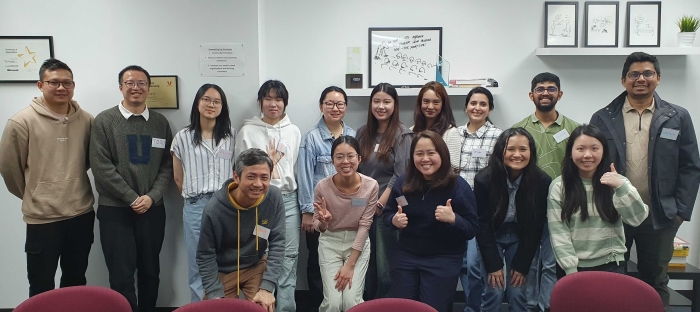
(Induction day on Tuesday 13 August 2024)
(Yong Kheng Beh visiting Connecting Up with Q&A on Wednesday 16 October 2024)
Sign up for the newsletter!
Subscribe to our monthly newsletter to receive news, information and events for the community sector in SA.




